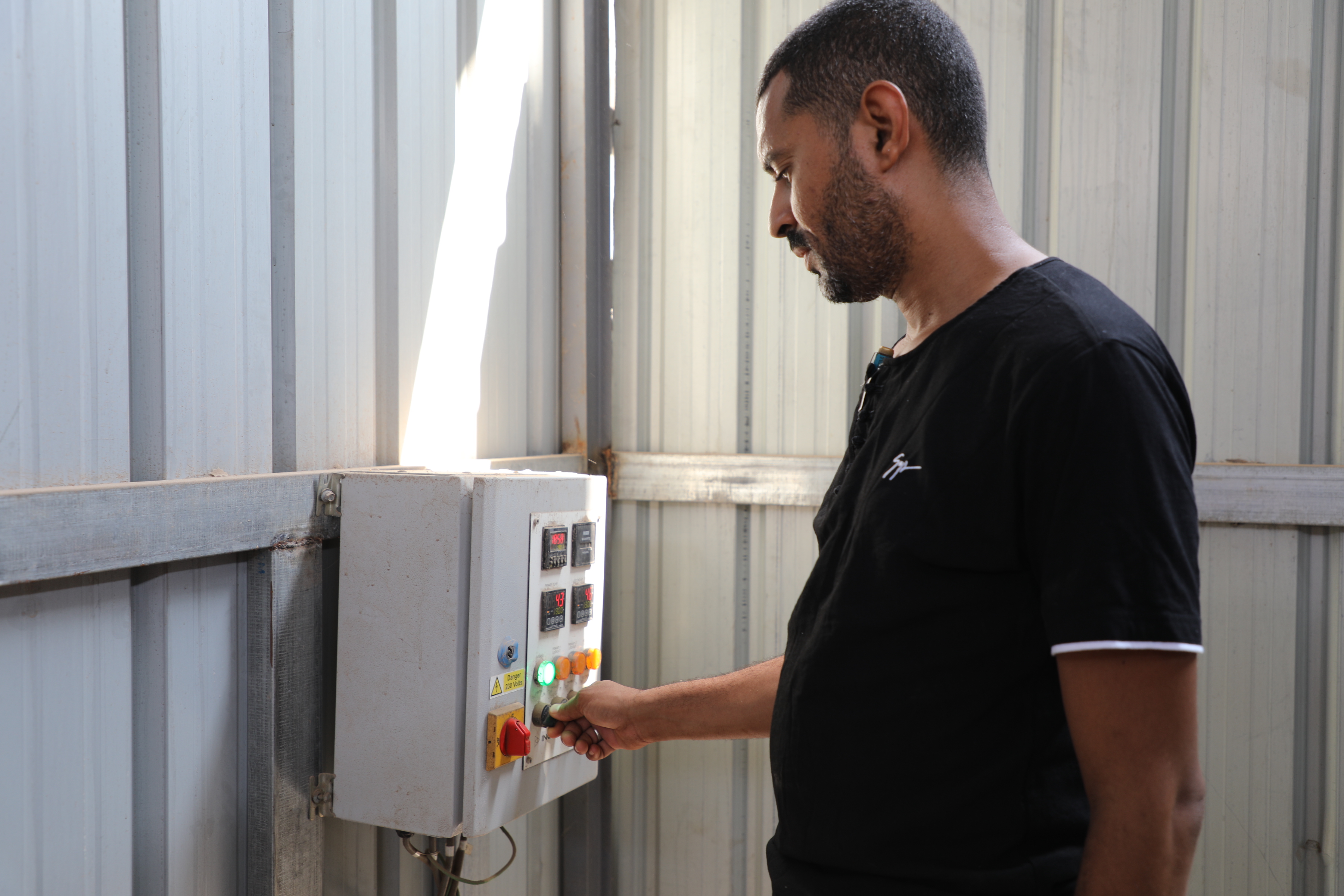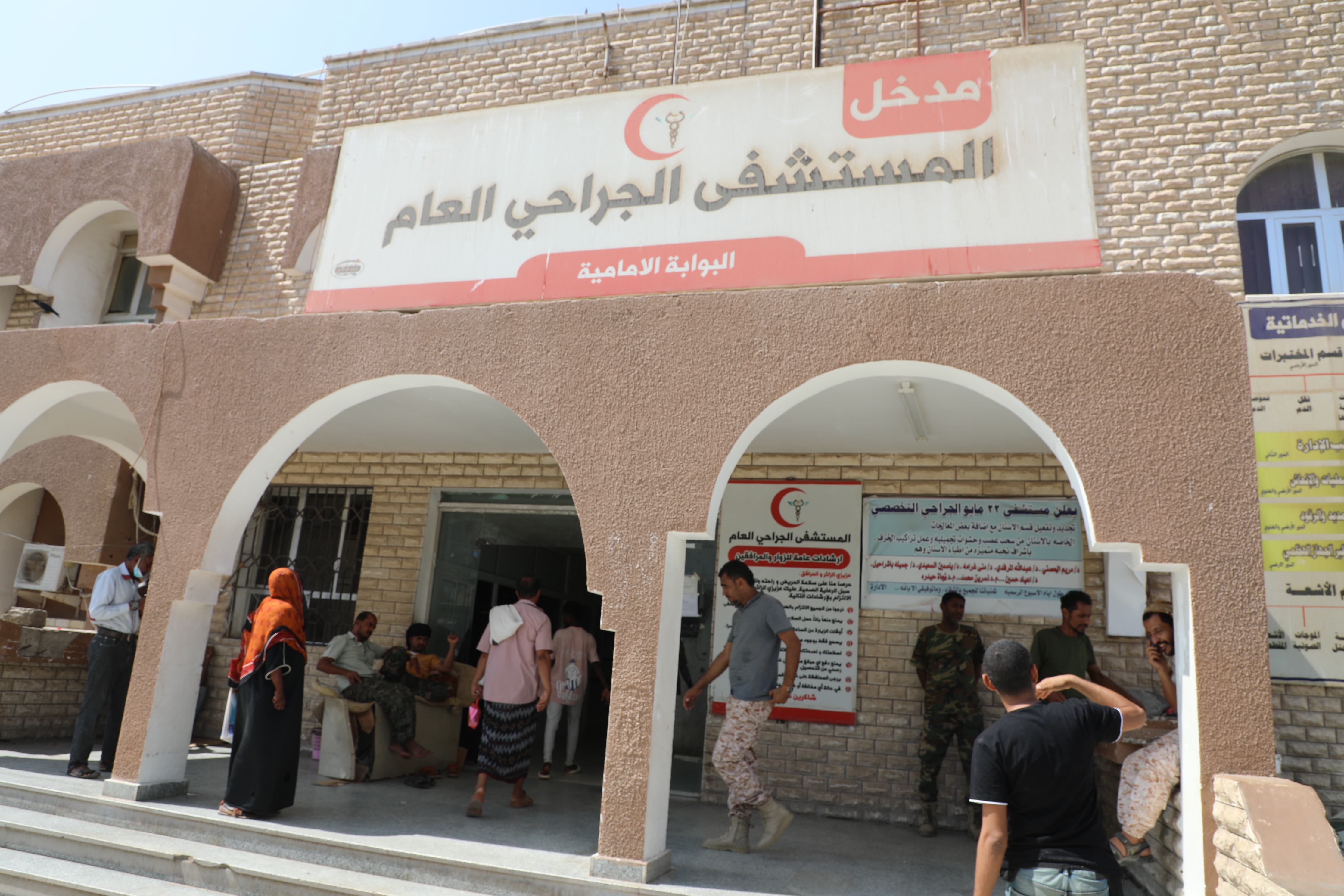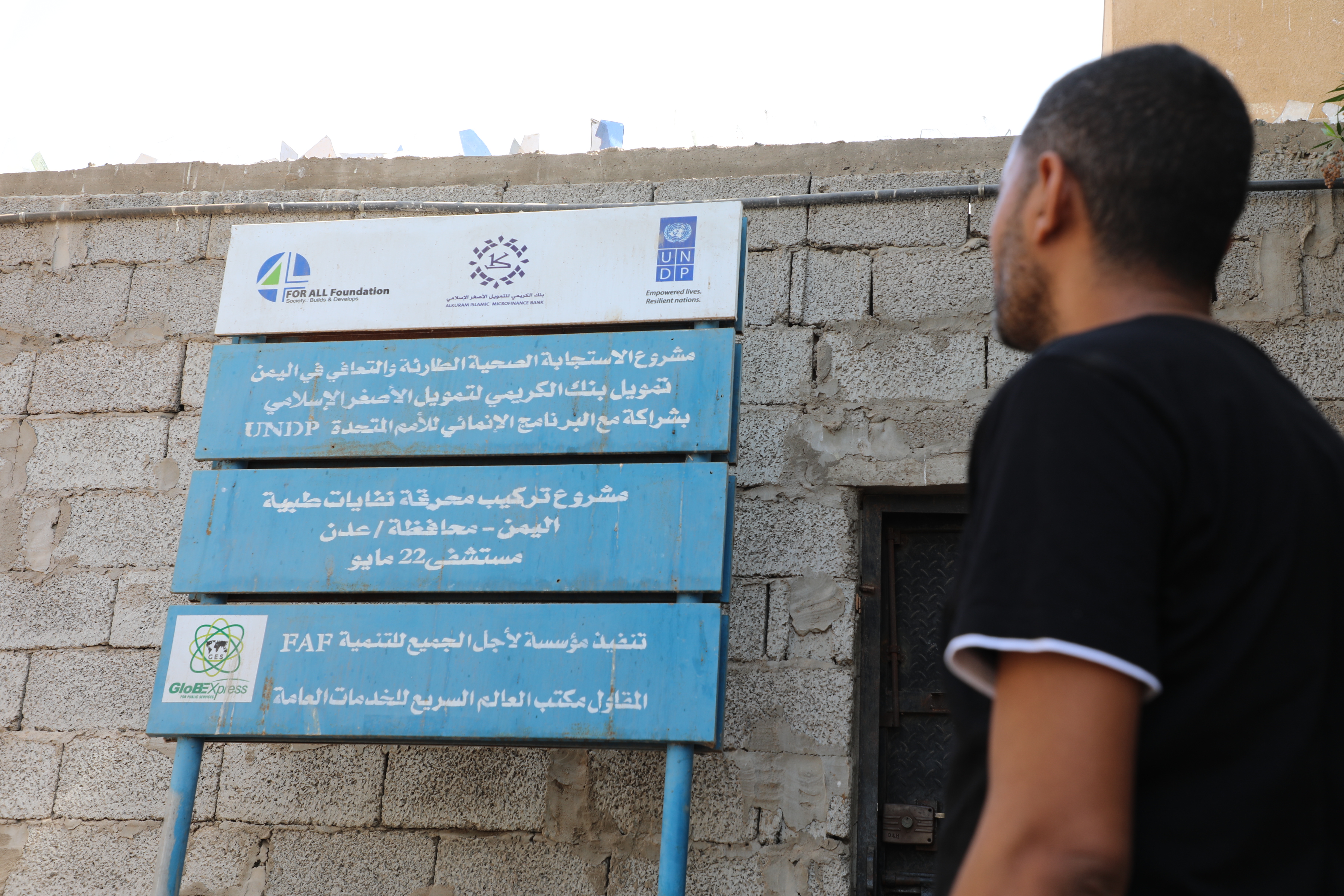Ensuring Safe Healthcare Waste Management: Abdullah's Important Role at a Yemeni Hospital
January 4, 2024

Abdullah (Abood) switches on a newly provided medical waste incinerator at 22nd May Hospital in Aden.
Instability in Yemen has devastated the country's medical system, with about half of health facilities fully functional and the rest facing challenges in providing adequate care. At the 22nd of May Hospital in Aden, one man works tirelessly to protect the health of patients and staff through proper waste management.
Abdullah, 35, who goes by Abood, has served as the Head of Electrical Engineering at the hospital for ten years. Originally from Aden, he is dedicated to maintaining critical equipment as the sole electrical engineer. However, eight months ago, Abdullah took on an additional responsibility - overseeing the hospital's waste incineration.

The main entrance to the 22nd May Hospital in Aden.
“We had a manual incinerator in the hospital. There was someone else responsible for burning the medical waste,” Abdullah explains. “When the new incinerator arrived, the hospital’s administration assigned me to be the operator, because as an electrical engineer, I was the most qualified person to deal with this new technology.”

A sign detailing project information.
The United Nations Development Programme (UNDP) provided the new incinerator in June 2022 as part of the COVID-19 Response Project, supported by the Al Kuraimi Islamic Microfinance Bank.
"The old manual incinerator caused a lot of smoke that could negatively impact the health of patients and staff," Abdullah notes. “The ignition, burning and cleaning processes also consumed a lot of time and effort. We had to wait for two days until we could extract the ashes and put in a new load of medical waste.”

The medical incinerator housed inside a shed

The shed that provides protection from sunlight and rain for the medical waste incinerator
Now, Abdullah supervises former manual operators in using the electrical incinerator more efficiently. "I received training from UNDP engineers on maintenance and operation," he explains.
With 25 kilograms of waste processed in four hours, it more than triples the old system's 7-kilogram capacity. Faster, cleaner burning contributes to a safer environment for the surrounding community.

The incinerator during the testing phase.
Healthcare waste management poses significant health risks to workers, the public, and the environment. These hazards include sharps-inflicted injuries, toxic exposure to pharmaceuticals and hazardous substances during handling or incineration, chemical burns, air pollution from particulate matter release during incineration, thermal injuries from open burning or incinerator operations, and radiation burns.
The 22nd of May Hospital receives around 150 new patients every day from Aden and other neighboring governorates. Many of those patients are from the internally displaced communities who cannot afford to go to private hospitals.
The new system boasts a rapid heating time, reaching 850°C in just two seconds, ensuring thorough waste destruction and minimizing potential health risks. Additionally, its capacity of 25 kilogram per load allows the hospital to efficiently handle its own medical waste while also serving the needs of nearby healthcare facilities.

Preparation for the disposal of medical waste.
"One hand cannot clap alone - this partnership between the Al Kuraimi Bank and UNDP benefited so many in need," Abdullah says.
This initiative is part of the Emergency Response to COVID-19 in Yemen project funded by the Al Kuraimi Islamic Microfinance Bank. and implemented by the United Nations Development Programme (UNDP) with cooperation from For All Foundation (FAF).
The Al Kuraimi Islamic Microfinance Bank’s generous contribution of US$ 600,000 also extended beyond the installation of the incinerator. This funding supported several crucial activities aimed at strengthening healthcare services in Yemen, including:
- Production and distribution of 55,000K Personal Protection Equipment kits in Sana’a, Aden and Taiz governorates: providing essential protective equipment to healthcare workers, safeguarding their health and preventing the spread of infections.
- Distribution of 560, 000 medical face masks: ensuring that patients and staff can access adequate protection during their hospital visits.
- COVID-19 sample collection in 14 districts of Taiz: facilitated timely diagnosis and treatment of COVID-19 cases, contributing to the control of the pandemic in the region.
- Provision of waste management materials for seven health facilities in Aden: addressed the critical need for proper waste management at healthcare facilities in the city, promoting a cleaner and safer environment for all.
- Introduction of five solar tuk-tuks for medical services in Taiz: this environmentally friendly transportation solution facilitated essential medical services and improved access to healthcare for residents in Taiz.
- Hygiene training for 60 people in Aden: empowered individuals with the knowledge and skills necessary to maintain hygiene and prevent the spread of infections, contributing to a healthier community.

 Locations
Locations